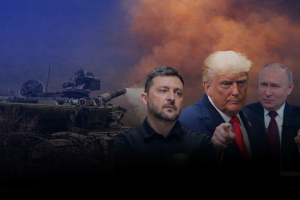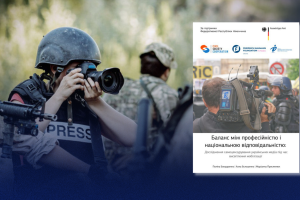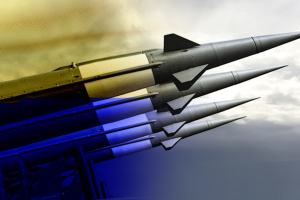How do the residents of the non-government controlled areas (NGCA) of Donbas subsist?
Ilko Kucheriv Democratic Initiatives Foundation (DIF) conducted 8 focus group interviews in the Donetsk oblast (Mykolayivka, Myrnohrad, Pokrovsk, Slovyansk) and in the Luhansk oblast (Rubizhne, Svatove, Syeverodonetsk, Starobilsk) on 17-25 February 2018. The purpose was to study the horizontal communication trends amongst the residents of divided Donbas and how focus group respondents assess the atmosphere amongst people in the temporarily occupied territory of the Donetsk and Luhansk regions (hereinafter – SDDLR[1] or NGCA). The study was prepared within the framework of the Ukrainian Confidence Building Initiative (UCBI II) funded by the United States Agency for International Development (USAID).
► Communication channels The residents of the Donetsk and Luhansk oblasts use quite a broad variety of tools and channels for communicating with their acquaintances and relatives that reside in the SDDLR territory. Respondents mostly use telephones along with Internet tools like Skype, social networks, and mobile apps (Viber, WhatsApp, etc.) and in-person communication during meetings in the government controlled territories of Donbas and while visiting the SDDLR. In communication with SDDLR residents try to avoid discussing political topics and evaluating the situation in the temporarily occupied territories (esp. while talking by phone).
► Conflict’s impact on interpersonal relations Respondents mostly preserved relations with those relatives and friends residing in SDDLR territory that share their views. They try to avoid discussing disputable political issues with relatives and close friends that have a contrary opinion. They enter into a debate with these individuals only if there is a mutual restraint or if they have at least some common opinions and judgments of the situation. At the same time, the respondents much more easily cut off contact with more distantly related people (acquaintances, colleagues, former classmates, group mates, etc.). In some cases, opinions on acute disputable issues eventually changed, which led to the restoration of relationships broken due to the conflict, and the priority in communication became household or family issues.
► How have NGCA residents’ lives changed during the conflict? Respondents evaluated the changes in SDDLR residents’ lives since the beginning of the conflict as changes mostly in the economic situation of some social groups. According to their opinion, improvements occurred for representatives of military and enforcement agencies, “ministries” of the self-proclaimed “republics” (so called “DPR/LPR”), local raiders who have held up others’ businesses in the uncontrolled territory of Donbas, and pensioners who receive Ukrainian pensions along with local payments. Conversely, the situation for low-skilled workers has deteriorated; here the employees of public institutions (teachers, doctors) and businesses that have not adapted to new conditions are subject to greater pressure from “inspection” bodies. The worst case is the situation of pensioners who, due to health reasons (or for other reasons), cannot travel to receive pension payment in Ukraine and survive only due to local financial assistance. Also suffering are those who lost their jobs, as well as those who live close to the line of delineation (because of periodic shelling, lack of utilities etc.). Relatively stable is the material situation of residents of the SDDLR who are highly skilled workers in fields that are in-demand in the international labor market (in particular, dentists and IT specialists were mentioned).
► Explaining the cause of the conflict by NGCA residents Focus groups’ respondents proposed different versions and explanations of why, according to their friends and relatives from uncontrolled territories, a military conflict in the Donbas was possible. Among the most frequently mentioned reasons: protests of the EuroMaidan and aspirations of European integration, manifestations of radicalism and nationalism in Ukraine, the desire of the new Ukrainian authorities to ban the Russian language, the reluctance of Kyiv to "hear" the Donbas, the desire of Donbas to gain autonomy for a more equitable distribution of produced value between the center and the region ("Donbas feeds Ukraine"), and the geopolitical conflict between Russia and the United States. Business interests of those who earn from war were among the possible explanations of the reasons for the continuation of the military conflict to date. It is noteworthy that nobody mentioned the factor of Russian aggression as the main cause of the conflict, and at the same time some of the people in the SDDLR, according to respondents, did not conceal their desire to join Russia in accordance with the Crimea scenario. Therefore, some people in the SDDLR are currently placing the blame for conflict on those who promised them a quick "entry" into Russia. In general, the majority of versions and named causes of the conflict take responsibility away from the population of the Donbas and place it on outside or external factors (Ukrainian authorities, Kyiv, nationalists, USA).
►Tendencies of conflict’s comprehension and change of opinion Over the last several years, at least four main tendencies in understanding the conflict have shaped public opinion of SDDLR residents. As participants of the focus groups noted, some of the SDDLR residents presently do not want the uncontrolled territories of Donbas to be returned to Ukraine even more firmly than before, while some look forward to full reintegration with Ukraine. There is a segment among the population in the region which has already agreed to reintegration of the SDDLR territories, but only after a change of power in Ukraine. Finally, the last visible tendency in public opinion of SDDLR residents is represented by those who are tired of the conflict and agree to any government that will ensure peace.
► Main problems and fears of SDDLR residents The main concern of SDDLR residents is linked to the continuation of warfare in Donbas and the inability to return to a stable and peaceful life. Also, according to respondents, their acquaintances and relatives from the temporarily uncontrolled territories of Donbas mention the whole range of related social problems: from living conditions and destruction to problems with providing telephone communication and opportunities for obtaining Ukrainian documents and employment. At the same time, as it seems from focus group interviews, a significant proportion of the people residing in the SDDLR live in an atmosphere of numerous anxieties and fears. Among those living near the military action zone, the most widespread is fear for their lives and the lives of their relatives. Some of the common fears are associated with Ukraine and its probable actions: the possibility of Ukrainian army offensive and accompanying destruction, fear of being detained by the Security Service of Ukraine (SBU), and the possibility of repressions against the families of the so-called "militia" representatives by the Ukrainian authorities. Some fears are connected with the activity of the "authorities" of the self-proclaimed "republics" (the so-called "DPR" and "LPR") - the fear of censorship and repression by the bodies of "state security". Since they are eventually dependent on contacts with Ukraine (receiving pensions, purchasing goods and medicines, keeping in contact with relatives), people from uncontrolled areas of the Donbas are also seriously worried about the possibility of the checkpoints at the delineation line in Donbas closing.
► The expectations and prospects of the future The main expectation of SDDLR residents is, above all, the prompt establishment of peace and stability and a return to the pre-war state. As for the perspective of the political future, some respondents noted that there are people who are still oriented towards Ukraine and, accordingly, are expecting the reintegration of the SDDLR into its borders. Others continue to hope for an "accession" to Russia scenario in accordance with the Crimean model. At the same time, during the course of the conflict, a stratum of people formed that expects the further development of the self-proclaimed "republics" to international recognition or the achievement of broad autonomy within Ukraine. Similar to the vision of political prospects, NGCA residents associate the future of their children either with Russia or with Ukraine, while there are those who hope to adapt children to the "republics" state of affairs and assure them a good livelihood there in the future.
► Assessing the situation in Ukraine and the SDDLR According to focus group respondents, SDDLR residents, regardless of political preferences and views, prefer peaceful life and well-being, cheaper and better quality products, the availability of a wide range of medicines in pharmacies, and better employment opportunities in Ukraine. Instead, they do not like lengthy and uncomfortable procedures for crossing checkpoints, long lines at pension funds and bureaucratic retrenchment, high taxes on utilities, expensive healthcare, bad roads, Ukrainianization and the policy of de-communization, as well as the lack of order and stability in Ukraine. In the so-called "republics", SDDLR residents do not like the lack of jobs in the civilian sphere, the curfew, the lower quality and higher prices of products, the problems with medicines, and the prohibition on visiting Ukraine for certain categories of workers. The attitude of SDDLR residents about reforms in Ukraine is mostly indifferent or negative.
► Sources of information and information requests The main source of information for the residents of the NGCA are primarily Russian or local ("republican") TV channels. Ukrainian television is virtually unavailable in the uncontrolled territory (although several people "catch" some Ukrainian channels in poor quality, for example, NewsOne was mentioned), except for those who have satellite receivers or are looking for alternative information on the Internet. In the meantime, it is a very common opinion among NGCA residents that Ukrainian TV channels provide false information, which often leads to distrust or negative attitude towards Ukrainian media. SDDLR residents are most interested in the news of all television content. According to respondents, a certain segment of the NGCA residents is interested primarily in critical or negative information about events in Ukraine.
[1] SDDLR – abbreviation comes from Separate Districts of the Donetsk and Luhansk Regions (NGCA of Donbas)








